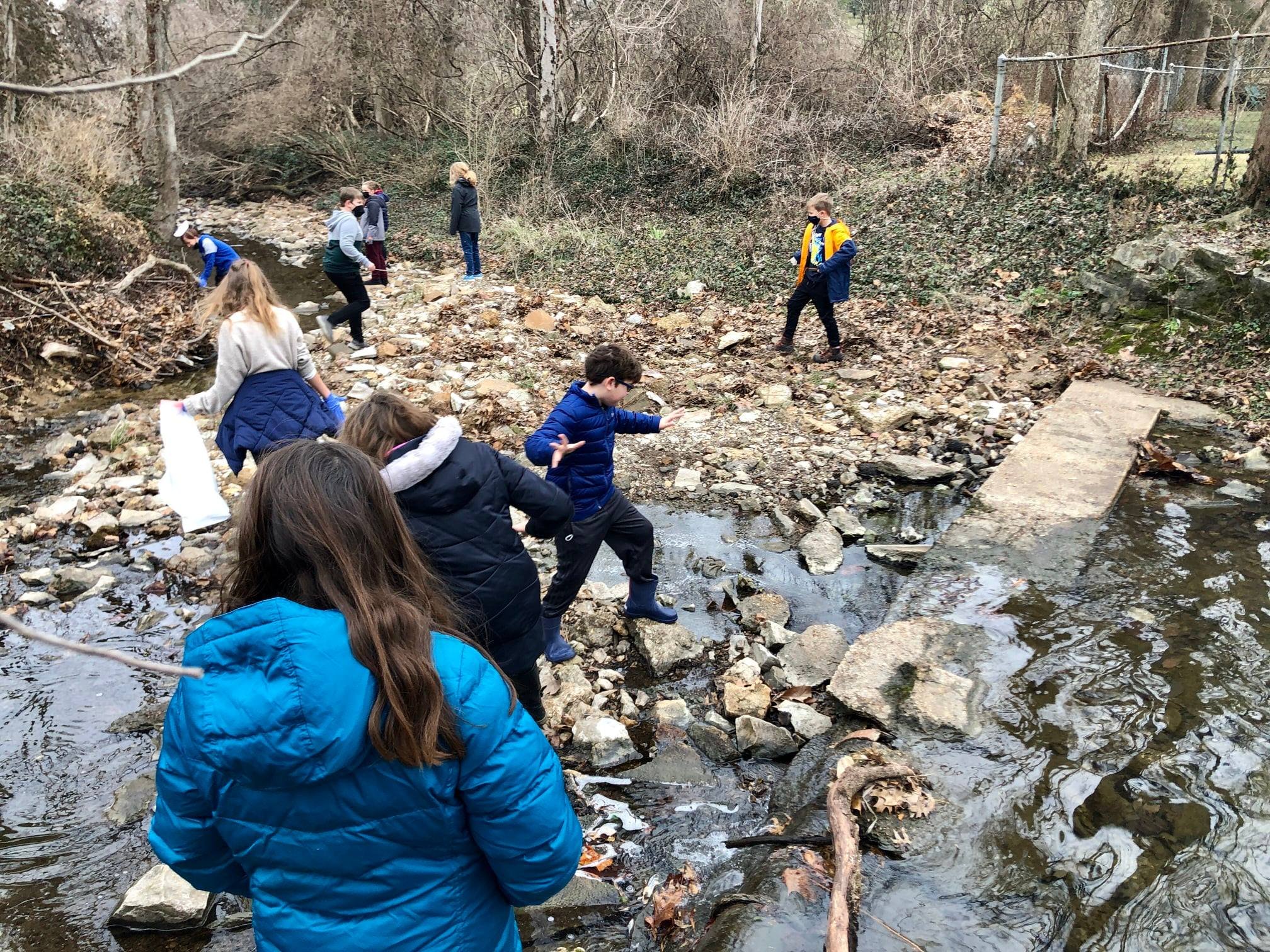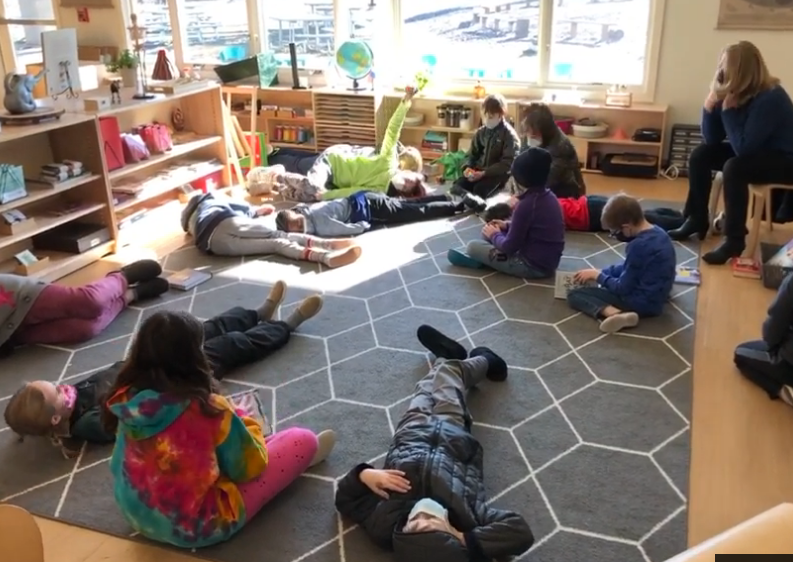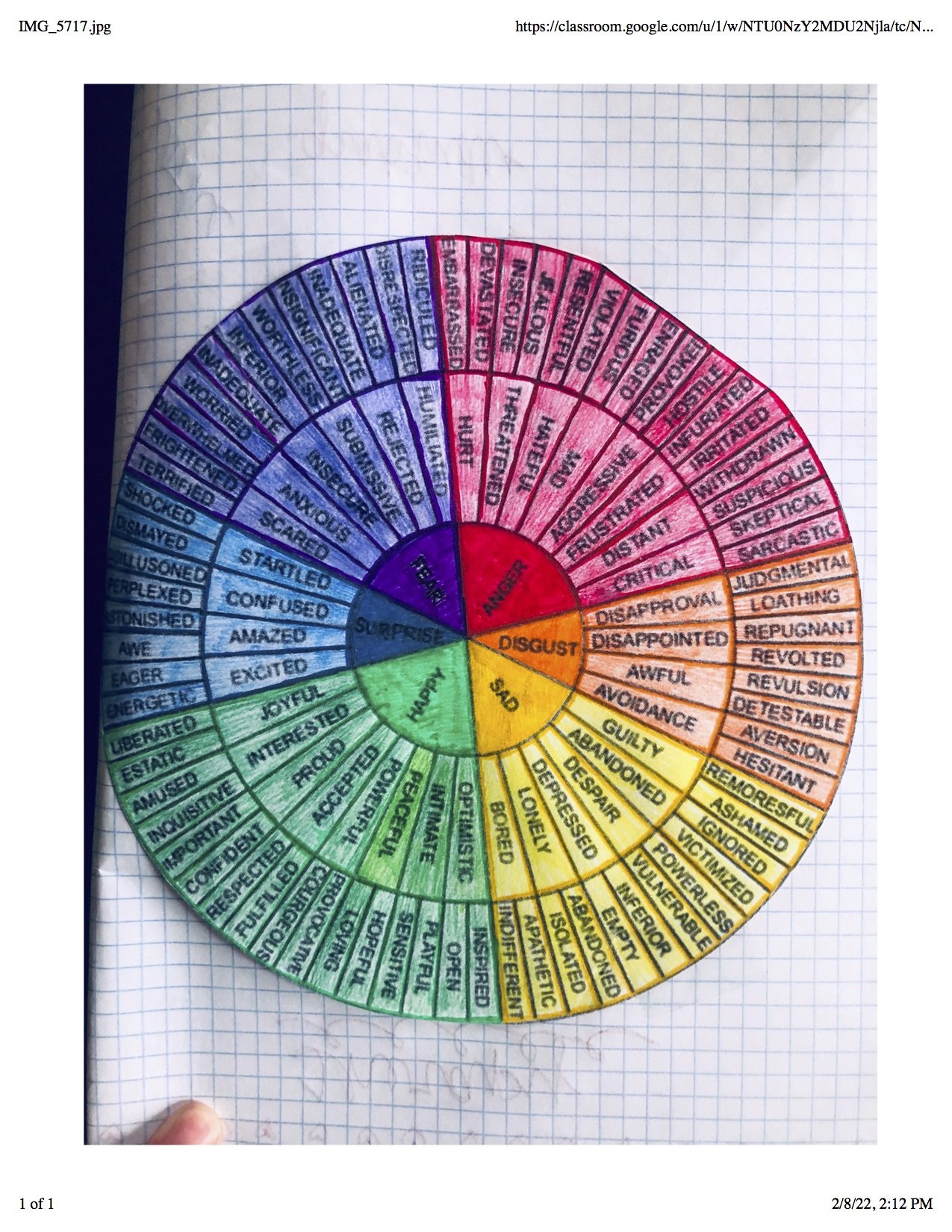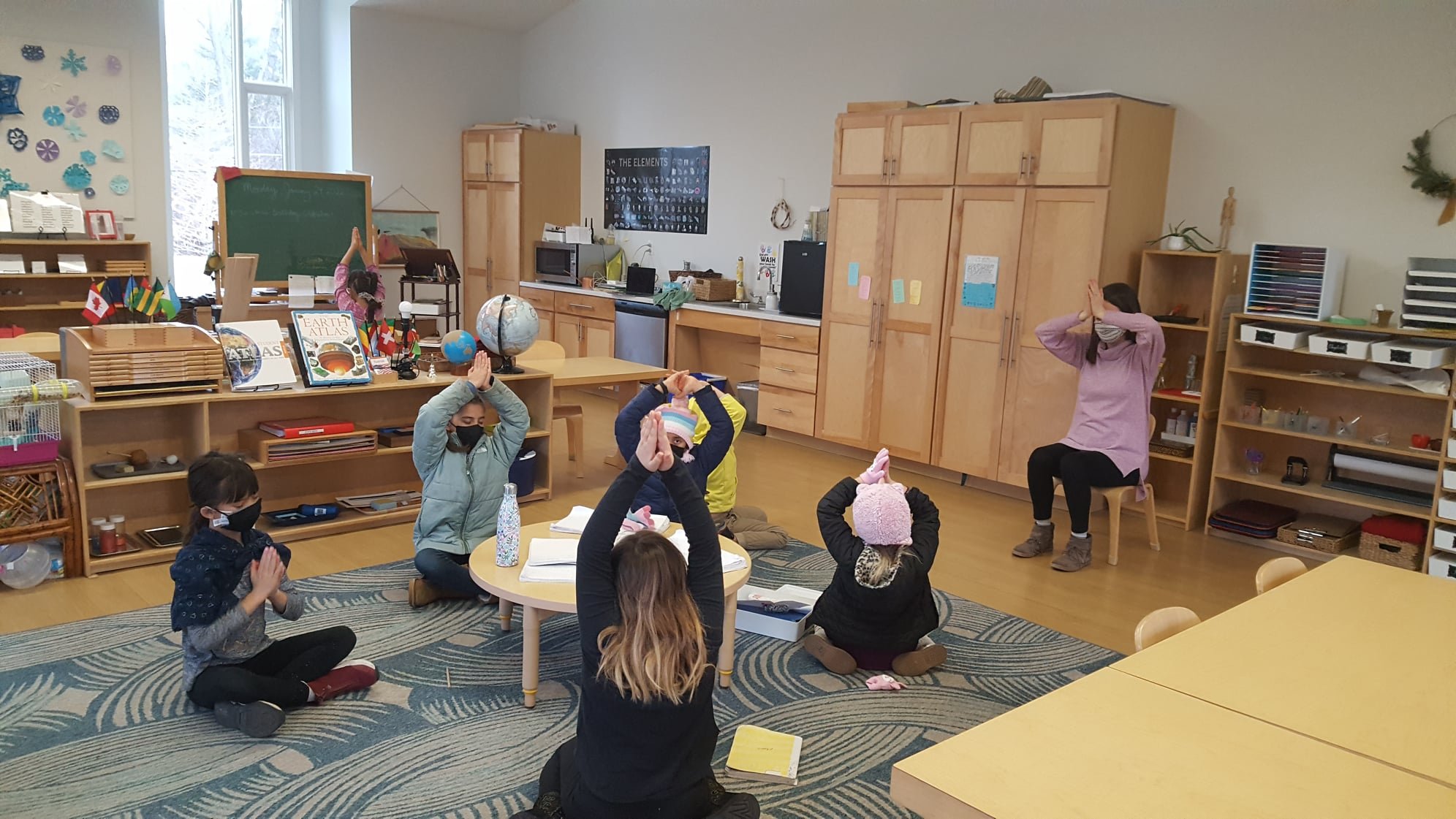Emotional Well-Being in the Montessori Classroom
 In today’s world, emotional literacy and well-being are vital for the flourishing of our children and young adults. Montessori philosophy naturally fosters this because we care about the development of the whole child—their emotional, physical, social, and intellectual development.
In today’s world, emotional literacy and well-being are vital for the flourishing of our children and young adults. Montessori philosophy naturally fosters this because we care about the development of the whole child—their emotional, physical, social, and intellectual development. In a Montessori environment, children are encouraged to pursue their unique learning styles; they aren’t rushed to master content for tests; and there’s no pile-on homework after a long school day. Montessori does not arbitrarily confine students in a one-size-fits-all grade level. Instead it encourages children to explore and learn at their own pace—it keeps natural curiosity alive and fosters intrinsic motivation. Montessori develops intellectual tools that grant children the joy of being life-long learners.
In a Montessori environment, children are encouraged to pursue their unique learning styles; they aren’t rushed to master content for tests; and there’s no pile-on homework after a long school day. Montessori does not arbitrarily confine students in a one-size-fits-all grade level. Instead it encourages children to explore and learn at their own pace—it keeps natural curiosity alive and fosters intrinsic motivation. Montessori develops intellectual tools that grant children the joy of being life-long learners. Another way Montessori supports emotional well-being is through movement. In her work with children, Dr. Maria Montessori observed a need for movement and a drive to explore the world through the hands. We know from our own experience that we are connected body and mind. How we use our bodies affects our concentration, outlook, and emotions. Nutrition, sleep, and exercise (read, “movement”!) are critical in the development of strong mental health.
Another way Montessori supports emotional well-being is through movement. In her work with children, Dr. Maria Montessori observed a need for movement and a drive to explore the world through the hands. We know from our own experience that we are connected body and mind. How we use our bodies affects our concentration, outlook, and emotions. Nutrition, sleep, and exercise (read, “movement”!) are critical in the development of strong mental health. In the Montessori classroom, children choose where and with whom to sit—where their bodies are most comfortable working. Many of the materials in the classroom environment incorporate movement of the body. For example, children move around the classroom to gather the materials for work; they manipulate small beads to do division; they follow language commands that lead them around the environment; and they perform experiments with solids, liquids, and gasses. When children are allowed to move freely in their learning environment, we see the positive effects expressed in their enjoyment of work and their upbeat demeanor at school.
In the Montessori classroom, children choose where and with whom to sit—where their bodies are most comfortable working. Many of the materials in the classroom environment incorporate movement of the body. For example, children move around the classroom to gather the materials for work; they manipulate small beads to do division; they follow language commands that lead them around the environment; and they perform experiments with solids, liquids, and gasses. When children are allowed to move freely in their learning environment, we see the positive effects expressed in their enjoyment of work and their upbeat demeanor at school. In addition to movement, nature has a powerful effect on our mental health. Numerous studies including those cited here reveal a link between time spent in nature and improved attention, lowered stress, and improved mood. At VdM, children have ample access to the outdoors and nature. Children at VdM experience daily hour-long outdoor recess. They also have the opportunity to work outside during the work cycle, spend time in the garden, feed the chickens, walk the classroom dog, rake the neighbor’s leaves, or carry out the trash, recycling, and compost.
In addition to movement, nature has a powerful effect on our mental health. Numerous studies including those cited here reveal a link between time spent in nature and improved attention, lowered stress, and improved mood. At VdM, children have ample access to the outdoors and nature. Children at VdM experience daily hour-long outdoor recess. They also have the opportunity to work outside during the work cycle, spend time in the garden, feed the chickens, walk the classroom dog, rake the neighbor’s leaves, or carry out the trash, recycling, and compost. Finally, Montessori guides seamlessly weave techniques into their lessons that help children manage their challenging emotions. For example, guides model positive self-talk when a child is struggling to learn something new. They offer social scripts to help students navigate conflict; for instance, “I need some time alone before I’m ready to talk,” or “It made me feel... when you…” VdM guides employ specific lessons and work choices geared toward the development of emotional literacy as well. Some guides lead regular meditation practice, yoga, or teach breathing techniques to calm bodies and minds. Specific areas of the classroom environments are set up for children to practice calming techniques, such as a finger labyrinth or yoga poses.
Finally, Montessori guides seamlessly weave techniques into their lessons that help children manage their challenging emotions. For example, guides model positive self-talk when a child is struggling to learn something new. They offer social scripts to help students navigate conflict; for instance, “I need some time alone before I’m ready to talk,” or “It made me feel... when you…” VdM guides employ specific lessons and work choices geared toward the development of emotional literacy as well. Some guides lead regular meditation practice, yoga, or teach breathing techniques to calm bodies and minds. Specific areas of the classroom environments are set up for children to practice calming techniques, such as a finger labyrinth or yoga poses. The wheel of emotions is a beautiful material that gives students a robust understanding of their feelings and those around them.
The wheel of emotions is a beautiful material that gives students a robust understanding of their feelings and those around them. At Villa di Maria we are grateful to accompany each child in their unique journey and contribute to the prioritization of emotional literacy and well-being in education and our world. We are raising future leaders that care about the individual and all the complex facets of human beings.
At Villa di Maria we are grateful to accompany each child in their unique journey and contribute to the prioritization of emotional literacy and well-being in education and our world. We are raising future leaders that care about the individual and all the complex facets of human beings.

